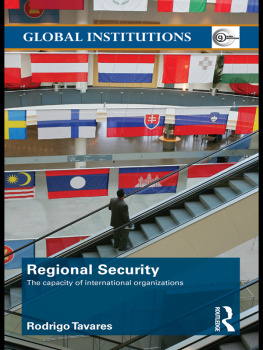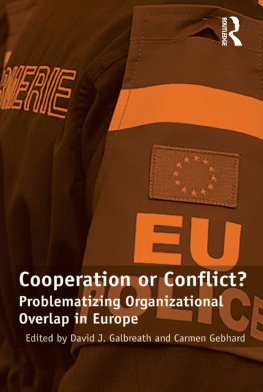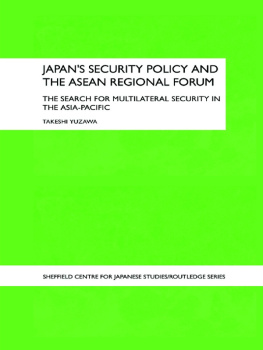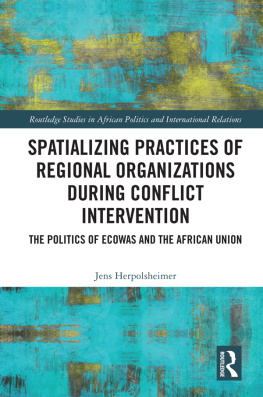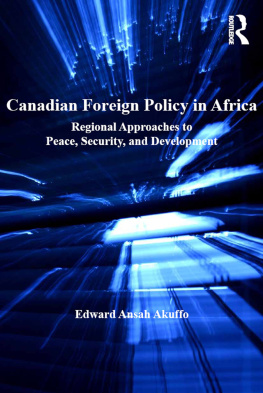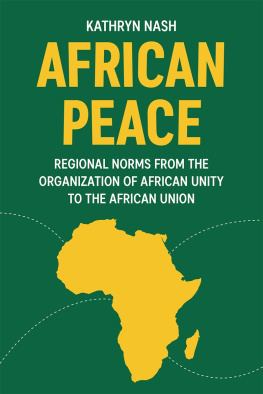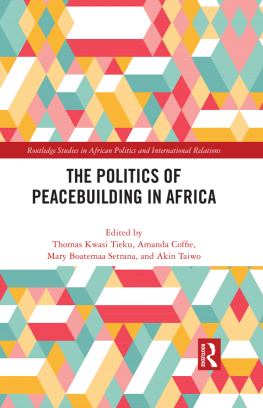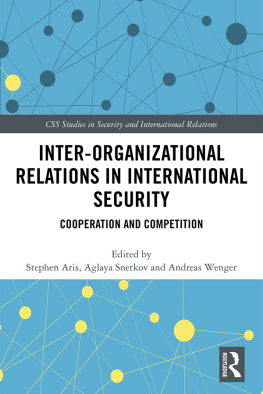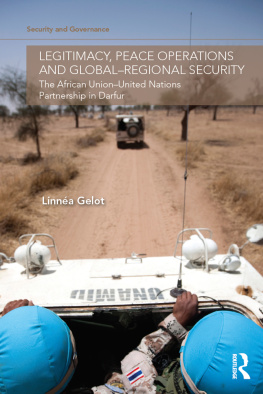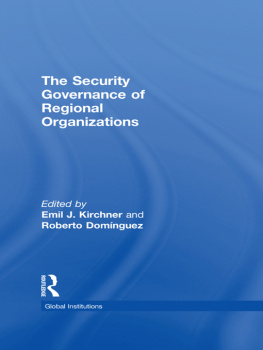Regional Security
Regional organizations are an inescapable feature of global politics. Virtually all countries in the world are members of at least one regional or other intergovernmental organization.
The involvement of international organizations in the realm of regional peace and security, and their cooperation in this domain with the United Nations, has reached an unprecedented level. Regional organizations have traditionally been formed around economic, political, or environmental objectives; however, over the last decades these organizations have gradually penetrated into the security sphere and developed their capacities in conflict prevention, peacekeeping, or post-war reconstruction.
In Europe, Africa, Asia, or the Americas, regional and other intergovernmental organizations have been concurrently empowered by the UN and their own member states to maintain peace and security. Despite suffering from important discrepancies in both their mandates and capacities, regional organizations have become indisputable actors that play a role from the outbreak of a crisis to the reconstruction efforts in the aftermath of a conflict.
Presenting the most up-to-date critical and comparative analysis of the major regional security institutions, assessing a wide range of regional organizations, and providing an accessible and comprehensive guide to 11 key organizations, this book is the first systematic study of the capacities of the most recognized intergovernmental organizations with a security mandate. Regional Security is essential reading for all students of international organizations, peace and security studies, and global governance.
Rodrigo Tavares is Research Fellow at United Nations University (UNU-CRIS), Belgium and the School of Global Studies, University of Gothenburg, Sweden. He also served as a consultant to national governments and several UN agencies.
Routledge Global Institutions
Edited by Thomas G. Weiss
The CUNY Graduate Center, New York, USA
and Rorden Wilkinson
University of Manchester, UK
About the Series
The Global Institutions Series is designed to provide readers with comprehensive, accessible, and informative guides to the history, structure, and activities of key international organizations. Every volume stands on its own as a thorough and insightful treatment of a particular topic, but the series as a whole contributes to a coherent and complementary portrait of the phenomenon of global institutions at the dawn of the millennium.
Books are written by recognized experts, conform to a similar structure, and cover a range of themes and debates common to the series. These areas of shared concern include the general purpose and rationale for organizations, developments over time, membership, structure, decision-making procedures, and key functions. Moreover, current debates are placed in historical perspective alongside informed analysis and critique. Each book also contains an annotated bibliography and guide to electronic information as well as any annexes appropriate to the subject matter at hand.
The volumes currently published include:
36 Regional Security (2009)
The capacity of international organizations
by Rodrigo Tavares (United Nations University)
35 The Organisation for Economic Co-operation and Development (2009)
by Richard Woodward (University of Hull)
34 Transnational Organized Crime (2009)
by Frank Madsen (University of Cambridge)
33 The United Nations and Human Rights (2009)
A guide for a new era, 2nd edition
by Julie A. Mertus (American University)
32 The International Organization for Standardization and the Global Economy (2009)
Setting standards
by Craig N. Murphy (Wellesley College) and JoAnne Yates (Massachusetts Institute of Technology)
31 Shaping the Humanitarian World (2009)
by Peter Walker (Tufts University) and Daniel G. Maxwell (Tufts University)
30 Global Food and Agricultural Institutions (2009)
by John Shaw
29 Institutions of the Global South (2009)
by Jacqueline Anne Braveboy-Wagner (City College of New York, CUNY)
28 International Judicial Institutions (2009)
The architecture of international justice at home and abroad
by Richard J. Goldstone (Retired Justice of the Constitutional Court of South Africa) and Adam M. Smith (Harvard University)
27 The International Olympic Committee (2009)
The governance of the olympic system
by Jean-Loup Chappelet (IDHEAP Swiss Graduate School of Public Administration) and Brenda Kbler-Mabbott
26 The World Health Organization (2009)
by Kelley Lee (London School of Hygiene and Tropical Medicine)
25 Internet Governance (2009)
The new frontier of global institutions
by John Mathiason (Syracuse University)
24 Institutions of the Asia-Pacific (2009)
ASEAN, APEC, and beyond
by Mark Beeson (University of Birmingham)
23 UNHCR (2008)
The politics and practice of refugee protection into the twenty-first century
by Gil Loescher (University of Oxford), Alexander Betts (University of Oxford), and James Milner (University of Toronto)
22 Contemporary Human Rights Ideas (2008)
by Bertrand G. Ramcharan (Geneva Graduate Institute of International and Development Studies)
21 The World Bank (2008)
From reconstruction to development to equity
by Katherine Marshall (Georgetown University)
20 The European Union (2008)
by Clive Archer (Manchester Metropolitan University)
19 The African Union (2008)
Challenges of globalization, security, and governance
by Samuel M. Makinda (Murdoch University) and Wafula Okumu (McMaster University)
18 Commonwealth (2008)
Inter- and non-state contributions to global governance
by Timothy M. Shaw (Royal Roads University)
17 The World Trade Organization (2007)
Law, economics, and politics
by Bernard M. Hoekman (World Bank) and Petros C. Mavroidis (Columbia University)
16 A Crisis of Global Institutions? (2007)
Multilateralism and international security
by Edward Newman (University of Birmingham)
15 UN Conference on Trade and Development (2007)
by Ian Taylor (University of St. Andrews) and Karen Smith (University of Stellenbosch)
14 The Organization for Security and Co-operation in Europe (2007)
by David J. Galbreath (University of Aberdeen)
13 The International Committee of the Red Cross (2007)
A neutral humanitarian actor
by David P. Forsythe (University of Nebraska) and Barbara Ann Rieffer-Flanagan (Central Washington University)

